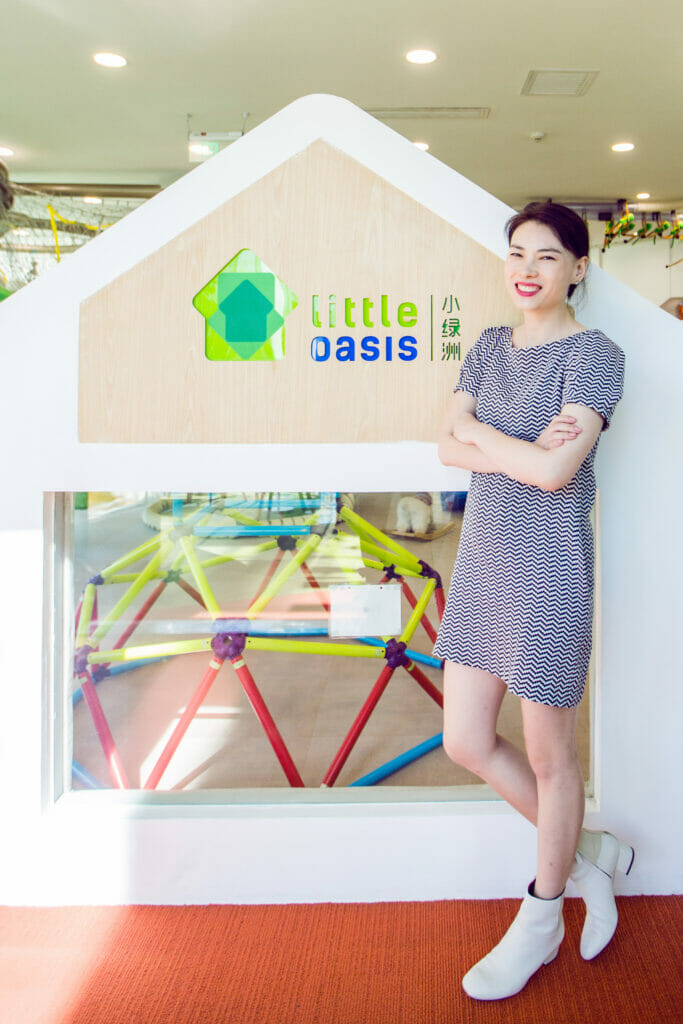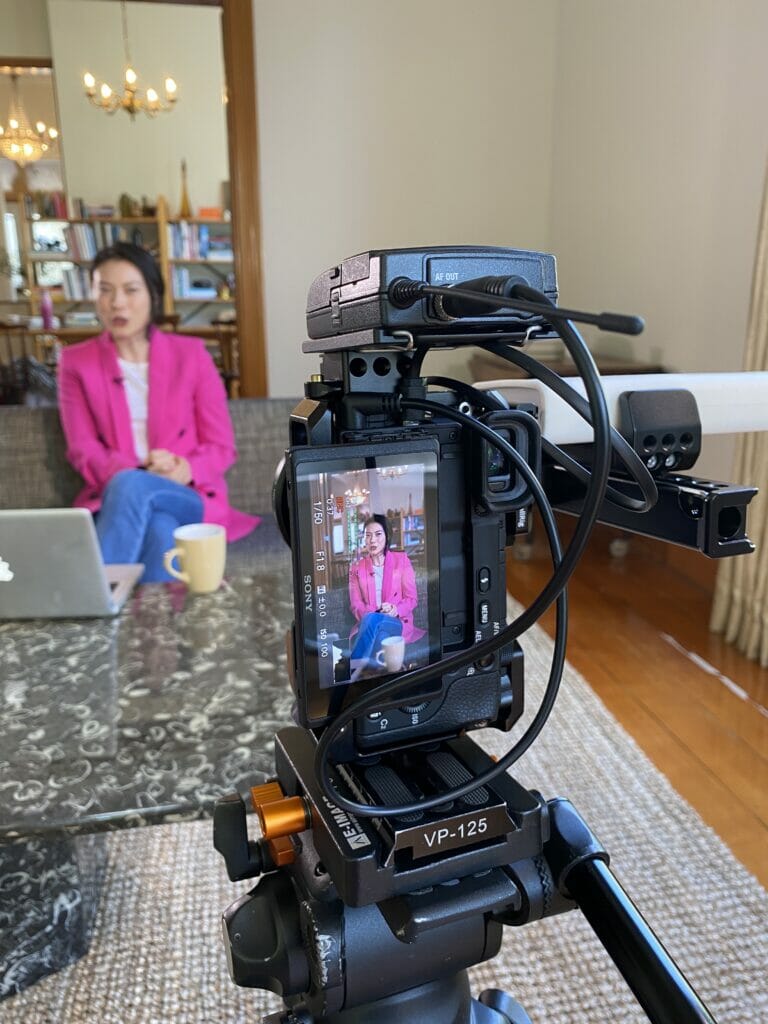Hannah Churchill, founder, hcreates
Tell us a little bit about yourself and your business?
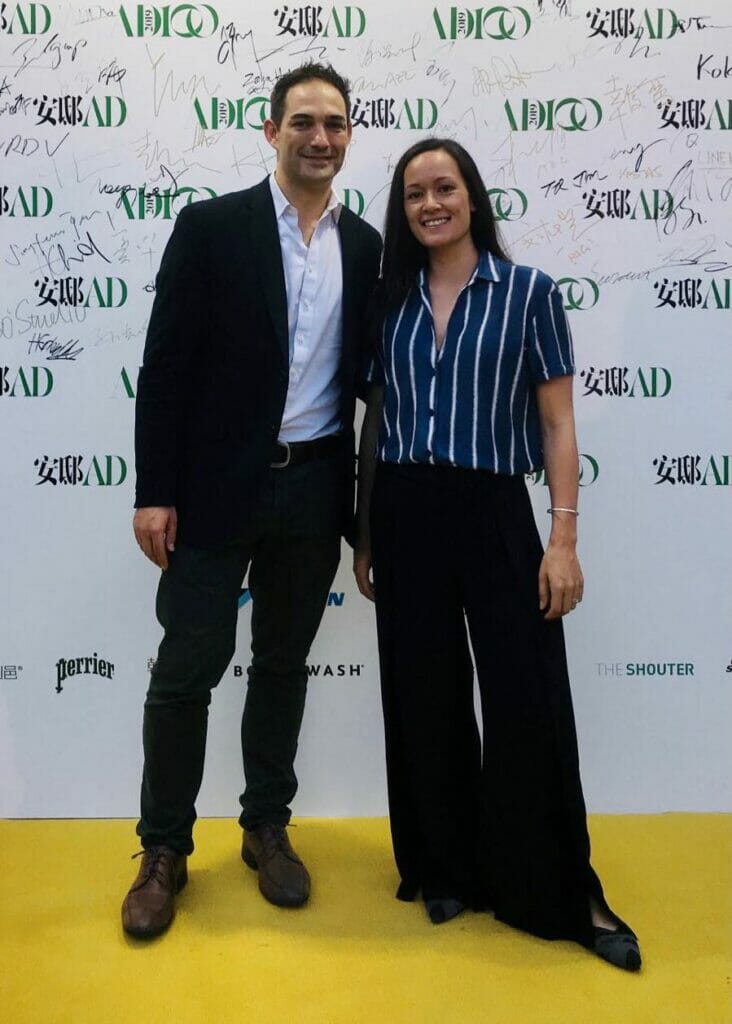
I grew up in Dunedin and moved to Wellington to complete a degree in Architecture at Victoria University. After graduating and working for a few years in Wellington, I had the opportunity to move to Shanghai. While there I helped a group of friends design their first bar which led to some more restaurants and hcreates was born. It’s been a busy ten years or so designing and completing over a 100 restaurants and bars, workspaces, gyms and retail spaces. I have been fortunate to be included in the Architectural Digest top 100 Designers in China since 2017.
What was 2020 like for H Creates? I imagine a design studio would have been affected in different ways than other companies.
The weeks in February after Chinese New Year are our most active time of the year, as clients begin new projects they hope to open by summer. The situation evolved rapidly at our most important time of the year. Almost every project in our pipeline vanished, all new projects went on hold, and leases were extended as people just tried keep their doors open let alone consider new ones.
Given the challenge what did you did you do?
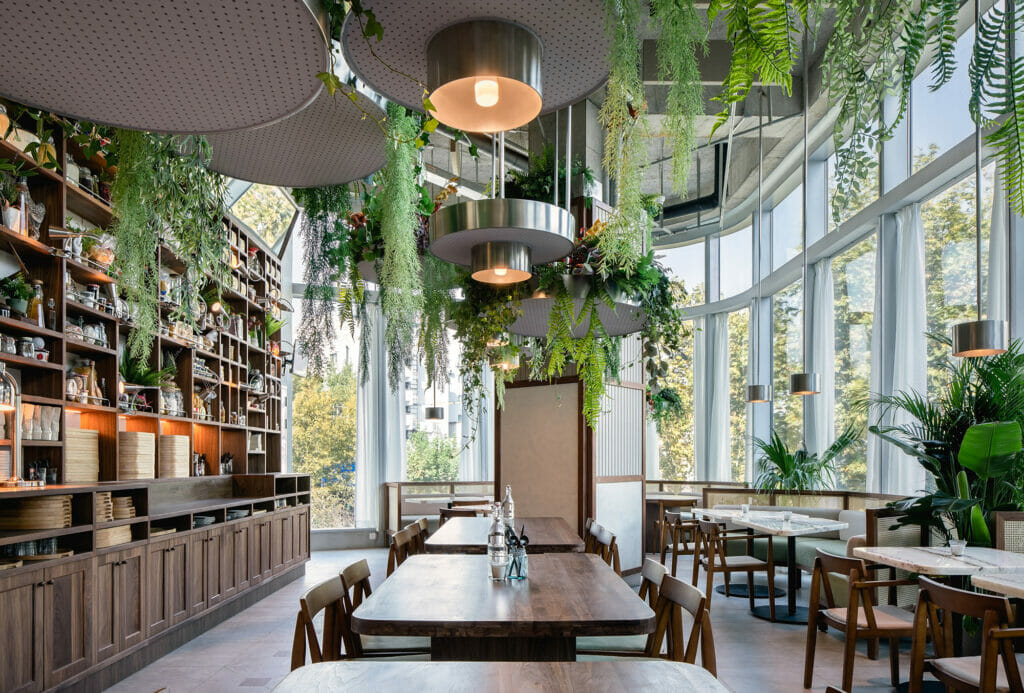
We realised there was no easy way out, and there were a mountain of factors completely out of our control. We made a conscious decision to just focus on what we could do. Initially, we got to spend a lot of time on internal tidy-up and planning. By May, Shanghai started to feel slightly more familiar again. So, we just got out there and had coffees with anyone and everyone to chat about our business. It was an anxious 4-5 months as we kept paying bills and worked towards rebuilding our pipeline.
Tell us about your most memorable experience in 2020? Any particular keywords or phrases that come to mind?
Whilst we were back in NZ over CNY (pre-lockdown), we caught up with an artist friend Anna Leyland whom we had collaborated on a Shanghai project before. When she was telling us all the plans she had over the next few months, she paused and said, “you know, you just got to keep hustling”. When we got back to China and things were looking pretty grim, we remembered that conversation and “keep hustling” kind of developed into a mindset for us that we were going to need to do be prepared to think and do things differently to make it through the year.
Finally, in the last quarter of the year, a coffee catch-up turned into an opportunity to work with an international entertainment company that is launching their brand in China. We are looking forward to seeing this project open its doors in 2021.
Do you see any new opportunities or positives for the interior design industry in 2021?
China is still a place of rapid change so generally there is a lot going on. We are already seeing a promising pattern in 2021. This is due to three main things, the delayed projects restarting, travel restrictions leading to increased domestic spending in hospitality and retail. Slower recovery in other global markets encouraging brands to speed up their China projects.
Andy Huang, owner, BLEND
Tell us a little bit about yourself and your business?
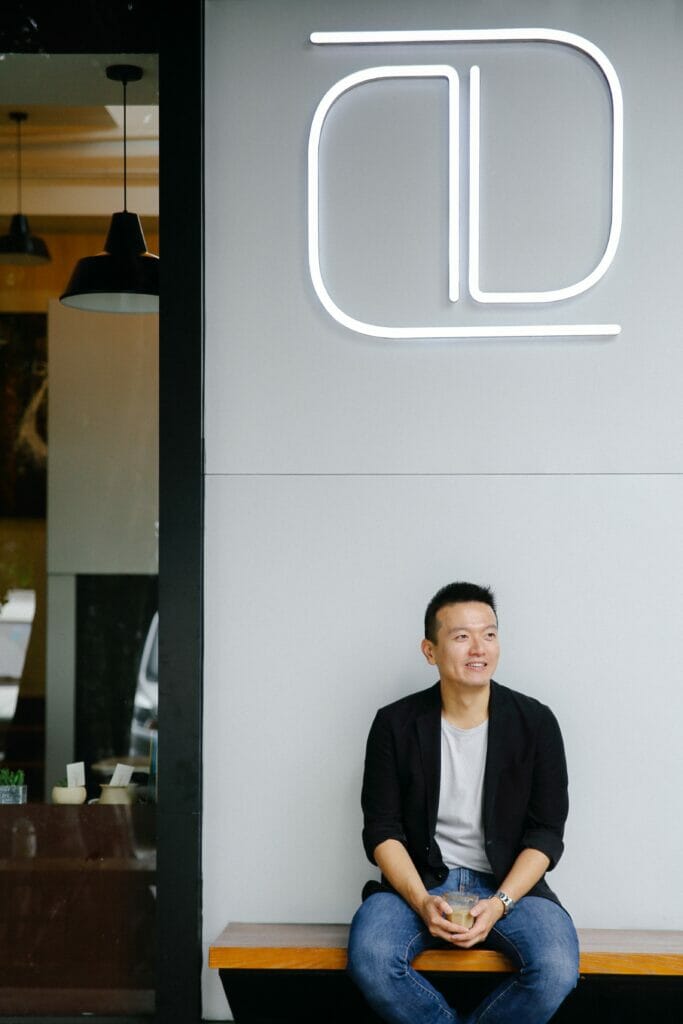
My name is Andy, I was born and raised in Shenzhen and went to New Zealand for my undergraduate studies in 2000. After I graduated, I started working for ASB bank and ended up spending ten amazing years in Auckland before I made a move to London, where I stayed until 2015. I decided to move back to Shenzhen to be closer to my parents, and I started my coffee business with my two business partners in 2016.
My business is an independent cafe brand named BLEND. Currently, BLEND has three branches in Shenzhen, and we were one of the very first cafes in Shenzhen to serve specialty coffees and provide all-day brunch daily.
What was 2020 like for Cafe Blend? I heard that you even opened up a new store during the lockdown period – which would seem like a bold move to the rest of us.
It was definitely a difficult start of the year for 2020. We were basically shut for the month of February, and then allowed to open only for takeaway and delivery at the beginning of March. It was only towards the end of March when we could finally operate with full service. Luckily, we saw business pick up fairly quickly. By May, we were pretty much back to our normal level of sales, something which we know was quite unusual in the food and beverage industry at that time.
Opening a third cafe in 2020 had always been in our plans, but we didn’t dream to be able to continue do it when the pandemic broke out. We watched our business and the market very closely. In May, when we saw that sales numbers were getting back to normal and, more importantly, the pandemic seemed to be getting under control in China, we made the decision to carry on with our plans and start looking for the right location for the third cafe. We acted fast — there were quite a few businesses closing down around that time, so we thought it might be in our favour to negotiate a rental deal. We managed to seal the deal for a site in Nanshan we really liked in June, and from there we were able to open our cafe in August!
Can you share with us some of the key strategies you used to increase customer orders and expand your business at a time like last year?
Firstly, I think we have always known what we want to achieve for the business and we stick to our plans all the way. BLEND was created to show people in Shenzhen what a cafe is like in New Zealand. We want to provide not only good coffee but also amazing all-day brunch dishes. Since we started the business in 2016, we made all of our business decisions with this goal in our minds.
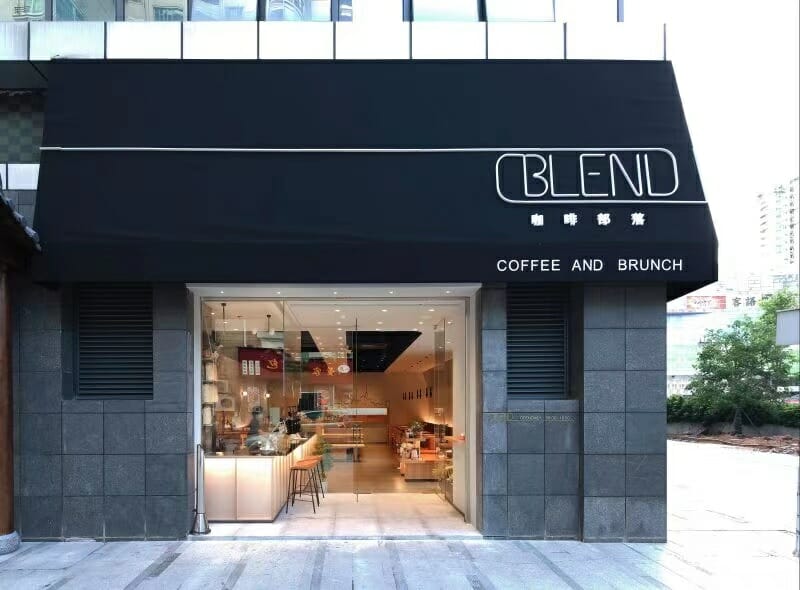
Secondly, we worked very hard to really understand our business, inside-out and outside- in. In the past few years we have improved so much in every aspect of our business, including products, customer service, the management system, training, etc. We understand what our customers like about BLEND and we never stop enhancing that experience, and more importantly, we built a very strong customer relationship with our clients. And we believe that’s how we were able to recover so quickly from the initial couple of months of the pandemic.
Thirdly, we have never stopped building a better team and a stronger brand. The competition in China is intense and things can happen at a much faster pace than elsewhere. That’s means if we stop thinking about what we can do next or planning ahead, we could soon fall behind and lose our place in the market. So it is important to build a company culture in which everyone has a drive for continuous improvement, and in which everyone see such changes and improvements in a very positive way.
Tell us about your most memorable experience in 2020? Any particular keywords or phrases that come to mind?
It was definitely when we were first allowed to reopen during the early stages of the pandemic. Customers even from far parts of the city ordered their food online and came to the cafe to collect it and support us. Some regulars visited, but because we had to maintain social distancing, we could only just wave our hands to say “hi”, or show a hug or kiss though the air, or sometimes we just stood there and smiled at each other. In those moments, we realised how much we miss the personal contact and interactions we have in normal times. Keywords and phrases like, “stay healthy” and “don’t take everything for granted”.
Do you see any new opportunities or positives for the specialty coffee industry in 2021?
I do think the specialty coffee industry will continue to grow not only in China but also around the world. The coffee drinking population is growing dramatically in China and that offers great opportunities. While coffee has an established place in people’s day-to- day life in the West, customers here in China have their own understanding about coffee with further potential to develop. And the varied understanding and knowledge about coffee means there are a lot of hidden opportunities to find and explore.
Augusta Xu-Holland, Actress
Tell us a little bit about your background and your experiences in China?
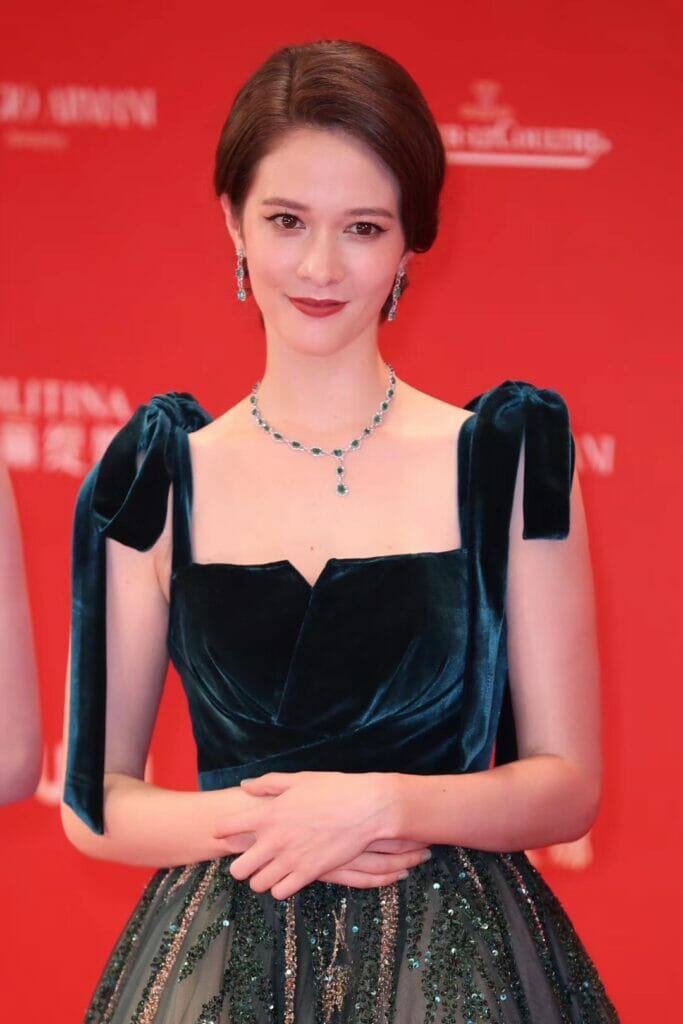
I was born in Auckland but my father is originally from Beijing so I had a bicultural upbringing. I went to Otumoetai College in Tauranga and then went on to complete a BSc in Biology and BA in Asian studies at Vic Uni in Wellington. After finishing university, OE was the next step, naturally and I made what was in retrospect the life-changing decision to travel a bit around China and see what was happening in this big country of my father’s ancestors. It turns out a lot was happening in China.
I immediately started working in public relations and also in bioenergy, and then was given a chance to move into acting. There was strong growth in the China film industry around that time in 2015 and, for some reason, I fitted right in, scoring my first role (romantic) as a nurse in a Hollywood China co-production. Since that first opening, I have played a wide range of novel characters including a teenage gang leader on the border between Russia and China, a sci-fi werewolf, a Michelin Star restaurant owner and a Malaysian Paris Hilton…
What was 2020 like for you? Did the pandemic cause any significant changes to your personal and professional life?
Needless to say it’s been hard to be away from friends and family, knowing that its not easy to get home. I came back to China right before borders were closed to foreigners and there was a time of uncertainty; everything was on hold while everyone tried to work out what was going to happen. The entertainment industry has somewhat rebounded and I was lucky to get
some good film work in a tv series towards the end of the year. It almost felt like normal conditions, just some nucleic acid tests and the crew were wearing masks.
Can you share with us one of your most memorable moments or achievements from 2020?

It would have to be the relief of the The Eight Hundred coming out, and my being in Beijing to be part of the excitement. Fortunately COVID was under control in China, so people could enjoy it on the cinema big screen. The movie raked in about 360 million USD in box office revenue so, interestingly, it was actually the top grossing film in the world for 2020, -which may be a little like ‘low hanging fruit’, I know, but we have to celebrate what we can! It was especially nice to have friends and family watch it back home in New Zealand cinemas too.
Any plans or aspirations for 2021?
I’ve been fortunate already to spend all of January working in Sanya, Hainan, shooting a TV series, with scene locations across various luxury resorts, by and even on the ocean as well as in very iconic Hainan coconut groves, so I have had my luck for the year already in a way. But, of course, like others, I really hope that the worldwide pandemic is able to be finally got under control, so China’s and the world’s film industry can flourish, and the great directing, acting and technical talent that I have appreciated working with in China so much, get to continue to use their wonderful skills. And hopefully we will also see some more filmmaking ventures between China and New Zealand.
In the meantime, with this change of pace, I have got to know other cities and regions of China better. For example, I’ve started a business with a friend which is based between Jinan in Shandong and Melbourne and I have also become more familiar with the Hainan provincial government business policies, and can see opportunities there for the future.
Gary Bradshaw, the Head of School for 3e International School (Beijing)
TELL US A LITTLE BIT ABOUT YOUR BACKGROUND AND YOUR EXPERIENCES IN CHINA?
I came to China back in January 2007 for a classroom teaching role at a small international school in Wuxi, Jiangsu. I am now in my 15th year in China and can say I have lived here much longer than I have lived anywhere else in my life. My childhood was spent as an ‘expat’, living in Zambia, Indonesia and Papua New Guinea, with periods of time in the UK, Australia and also in New Zealand.
Though born just outside Liverpool in the UK, our family moved to Zambia when I was 2 years old. My father worked as a mechanic in the copper belt mining area and wanted to provide opportunities for the family. From Zambia we moved to Indonesia, then to Australia and then to the island of Bougainville in Papua New Guinea as a teenager. My senior schooling at this time was by correspondence as there were no international schools.
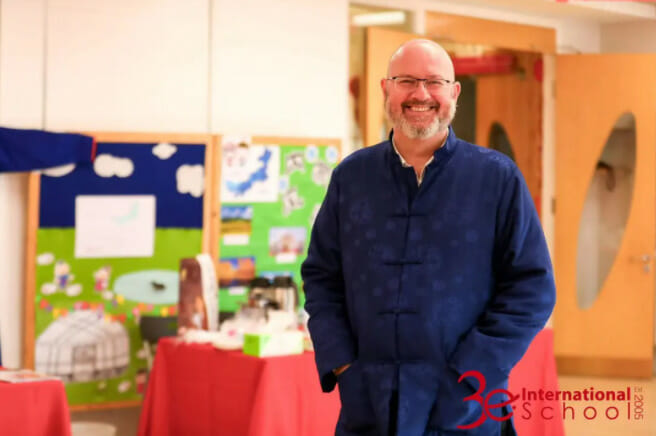
I finished my schooling at a boarding school in Nelson and remained there for a few years and became a New Zealand citizen. Over the years my career has taken a couple of turns as I moved from nursing to teaching and then to school leadership. It took me to the UK, Australia, back to New Zealand, Singapore, South Korea and finally here to China. Teaching and leadership roles in Wuxi, Chengdu and Beijing have left me feeling very comfortable and contented here in China, but I also know that at some stage I will return home to live in Wellington.
WHAT WAS 2020 LIKE FOR YOU? DID THE PANDEMIC CAUSE ANY SIGNIFICANT CHANGES TO YOUR PERSONAL AND PROFESSIONAL LIFE?
2020 was without a doubt one of my most challenging years professionally. At the time of the outbreak, my wife and I were enjoying Chinese New Year in Wellington. As news started to come in, with the very real prospect of school closure beyond the spring festival holiday, I had little choice but to come back. While other colleagues and friends in Beijing and China were doing all they could to get out of the country, I was desperate to get back in. I knew China was most probably the safest place to be and the school, families and teachers needed me back in Beijing.
It was a challenging year. Exacerbated by a series of unknowns and a school community demanding answers to questions we simply didn’t have answers to. This was compounded by governmental demands of data, information and time. For weeks on end I was unable to sleep, but little by little things became clearer, some questions answered and the reality of what was happening kicked in. A family health scare over in Australia in May had me worried that if something went wrong I would be unable to travel and be available if needed. I think it is the helplessness that is the most challenging. Not having the ability or the power to do or manage what you need to in a time of crisis can be debilitating.
We are not out of the woods yet in terms of this pandemic, but I am certainly better equipped now to deal with what comes my way.
CAN YOU SHARE WITH US ONE OF YOUR MOST MEMORABLE MOMENTS OR ACHIEVEMENTS FROM 2020?
Without a doubt getting our school back up and running and having children fill corridors and classrooms once again is one of the most memorable things from 2020. It was such a big break for children and families and so hard on them as they attempted to home school their children while juggling work and family commitments. We had amazing support from the best of our families.
There was so much appreciation and understanding about what were we’re trying to do, both with our home learning and with reopening. The teachers worked very hard throughout school closure and as a school we did all we could to support and nurture them. We knew we would be unable to please everyone along the way and we did lose some families.
All schools struggled, particularly private ones and some are still struggling. Our enrollment took a bit of a dive when the new year started. Uncertainty, pandemic restrictions and processes, along with continued fear kept some families away, but we are so happy we remain open and continue to be a viable learning option for families.
ANY PLANS OR ASPIRATIONS FOR 2021?
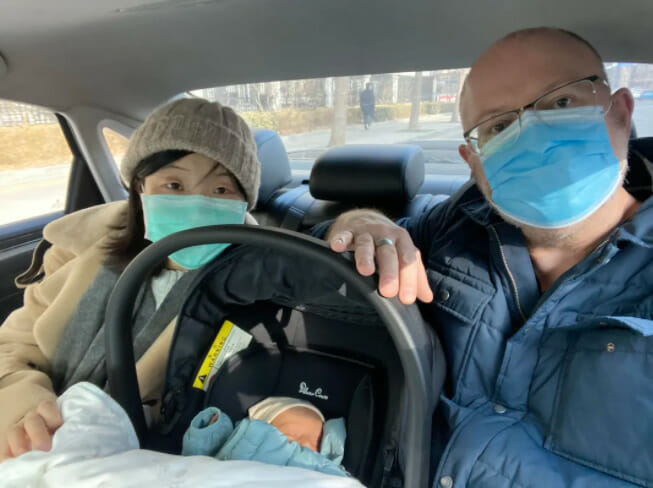
2021 is a new year and I am so excited to be able to welcome my first child, born just before Chinese New Year. There is little doubt my 2021 will be dedicated to ensuring that he is cared for, nurtured and gets all the love he deserves. On the professional front, I am looking forward to getting the school operating normally again. Many things have fallen by the wayside and opportunities for our school and professional communities to connect together in meaningful ways once again will be very welcome.
HAS YOUR COMMUNITY COME TOGETHER DURING THE PANDEMIC? WHAT ARE SOME EXAMPLES OF THIS?
Given the physical distance between myself and my wider family, technology has always played a part in how we have keep in touch. Never more so than during the pandemic. WeChat calling and messaging has been our go-to method for a couple of years and has helped us to be available for each other regardless of the time differences.
Reading and writing poetry has always been a big part of my life and being so far away has meant I had lost touch with what’s been going on. Many NZ poetry groups moved to online meetings and readings during the lockdown, so this enabled me to join and reconnect with the poetry world. I am now also a committee member and secretary for the New Zealand Poetry Society (NZPS), which allows me to keep up to date on poetry, writing and the arts scene back home.
WHAT WOULD YOU LIKE TO SEE HAPPENING IN CHINA’S KIWI COMMUNITY IN 2021?
There are loads of Kiwis all over China. Finding ways to connect them together and to connect them with home is so valuable. In reality many, like myself, will return to NZ at some stage and I know that fitting back in and building community will not be easy.
Expatriate life here in China is a cushy one. Returning home will be a challenge for us all and finding ways to reconnect through art, stories, literature, poetry, culture and sport while we are here would be so beneficial.
Some things I would love to see here include:
- The All Blacks in China
- a New Zealand book or literature festival
- Arts or Cultural festivals
- visiting artists in collaboration with Chinese artists
- more educational connections and opportunities that reflect both Chinese and New Zealand similarities & perspectives
HOW KEA CAN HELP
Join
Join the Kea community, and stay connected to New Zealand, its people and businesses wherever you are in the world.
Kea Connect
Help Kiwi businesses explore their global potential through our worldwide community.

 MENU
MENU

